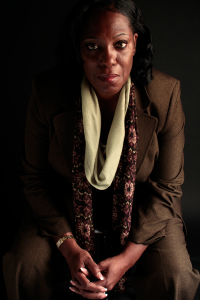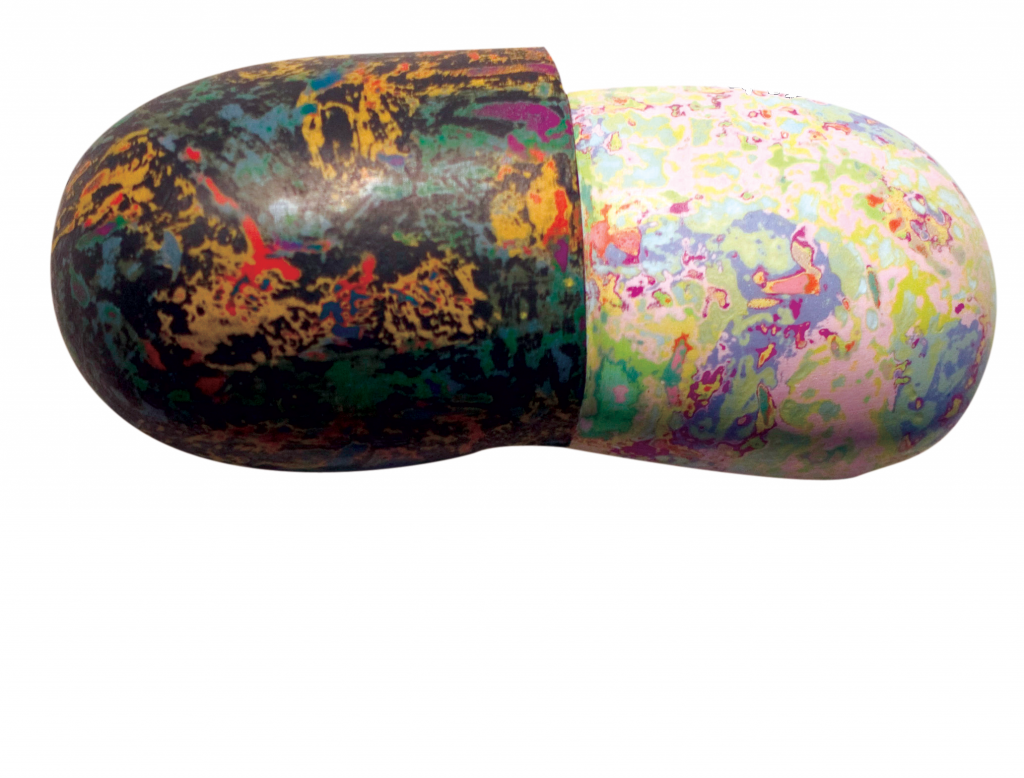By Mona Lisa Tucker/reporter
Near the South Campus library stood a black wrought-iron table where student Cinthia Polite, dressed in a ruffled lime-green blouse, dark slacks and boots, pulled up a chair and sat down.

Casey Holder/The Collegian
Wearing a gentle smile, she said, “I came up here [TCC] because I was a little bit discouraged. I was a customer support team lead for a computer company. They wrote software for hospitals.”
The company decided to move her whole team’s jobs abroad, she said.
“So I had to train people overseas to take over my job,” she said.
The company let her go last year, putting her in another tailspin, she said.
Then her mother was diagnosed with dementia in 2010, so she had to drive her mother back to Texas from Charleston, S.C.
“It was like a battle to get her to take her meds,” she said.
Furthermore, her 31-year-old son has schizophrenia, so for years she’s been putting him in and taking him out of the hospital and battling administrators to get her son’s personal information, she said.
“In the midst of all that, my youngest son was killed. He was 19 years old,” she said.
She became immensely depressed. Then, she decided she needed to get herself out of it.
“I had been trying to get into grad school because I have my B.S. in psychology, but no one would take me because I have a low GPA,” she said.
With nowhere to go, she came to TCC looking for direction. And while exploring the student development office, she was told about the Women In New Roles program.
“I went over there, but Triesha Light [program director] was on vacation. I just put a card under her door, and she called me,” Polite said.
Light later explained that WINR would be the best program for her, “to steer me in the right direction for what I needed to do,” Polite said.
Polite wanted to enter a profession that would give her the knowledge to help her mother, eldest son and other parents like herself, she said.
Light told her which colleges she needed to go to and told her she could get in. She just needed to retake some of the classes she didn’t successfully complete.
“The program is helping me realize that I can do it because at first I didn’t think I could because your mind gets old and cob-webbed,” she said.
Light’s going through the classes with patience and telling students they can succeed has helped tremendously, Polite said.
“It was hard, and then I blamed myself about my son because I thought, well, maybe if I had been home more and not focused so much on my career, maybe I could have figured out what was going on in his life a little bit better,” she said.
Her job kept her busy. She’d leave home when it was dark and come home when it was dark.
“God has told me a lot of things about that and my son and my life, so I’m just trying to keep it together right now. Go to school and help my mom and other son,” she said.
Polite said faith, prayer, worship and fellowship with the church is what keeps her going.
“One of the things they did to help me get out of my depression was they started me going with them to the Union Gospel Mission every second and fourth Saturday. We feed the homeless,” she said.
The volunteers seat the homeless as though they’re in a restaurant and serve them, she said. This helped her to see that despite everything she went through, other people still go through far worse, she said.
And the Lord has provided for her, she said. She has not missed a house or car payment yet.
“Life is actually much better than it has been in a long time,” she said. “God has made that better way, and I am actually content.”
Jeleise Sands, Polite’s daughter said she admires her mother’s sacrifice. Not only does she demonstrate selfless service for her loved ones but for the community as well.
“She never gives up and continues to put others before herself,” she said. “I know she will do well, and I trust she will aspire to be everything she deserves to be and more.”



























